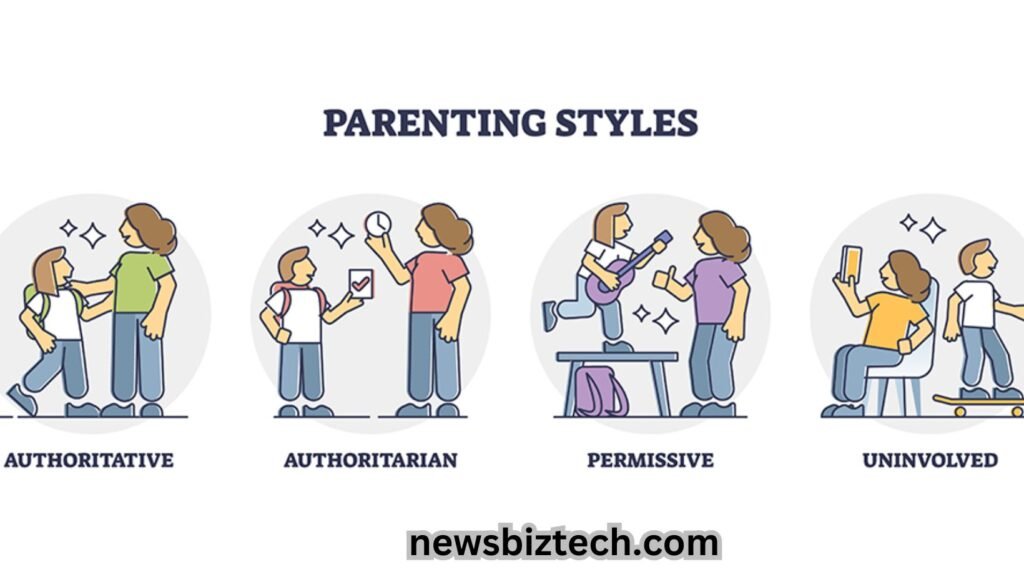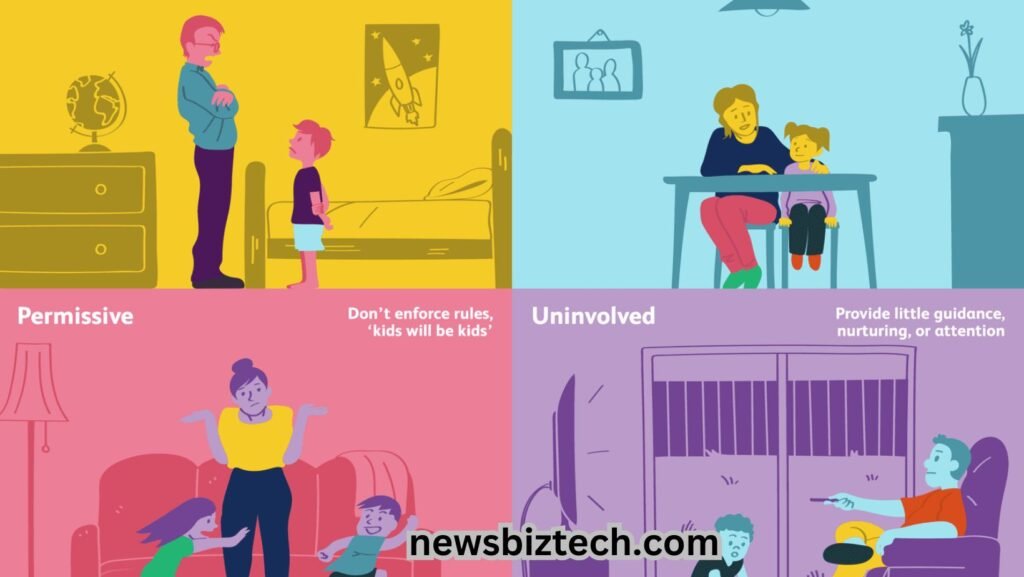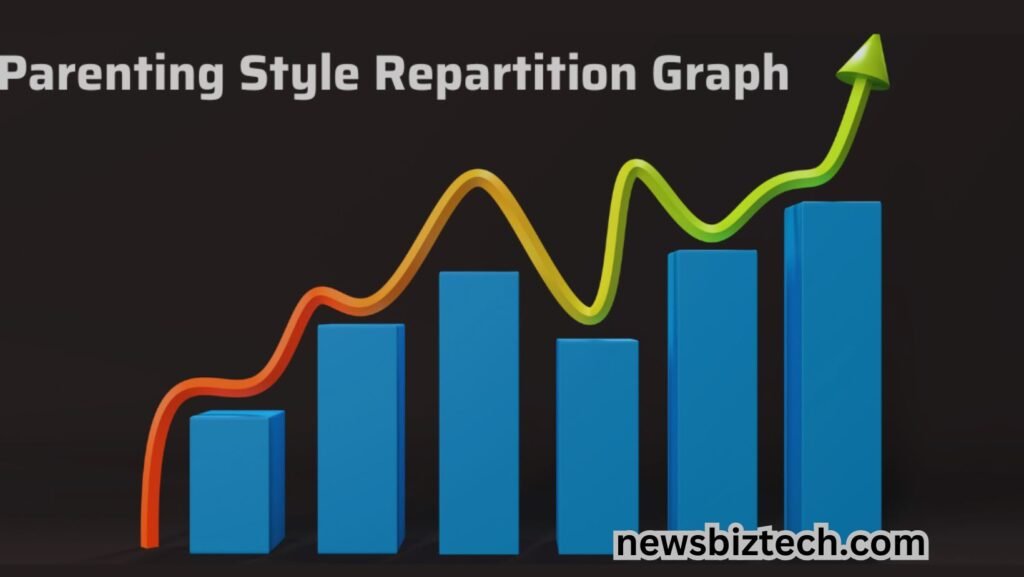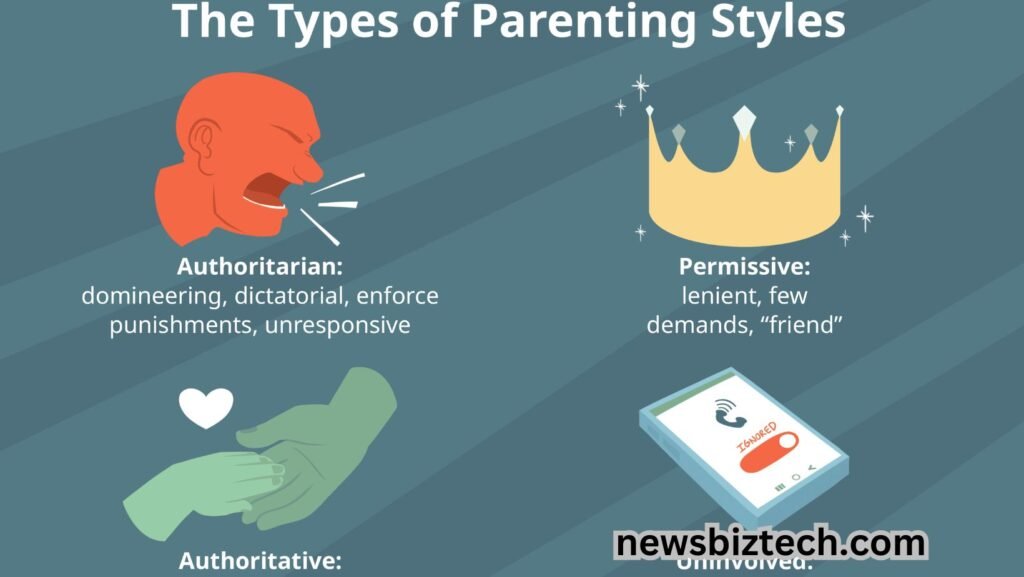Parenting style repartition is a term in psychology that describes categorizing and distributing varied parenting approaches used by caregivers to raise their children. The nature of interaction between the parent and his or her child, rule enforcement, and affection consequently affects the emotional, social, and cognitive development of a child. The article brings out the four main parenting styles which include authoritative, authoritarian, permissive, and uninvolved, outlining their characteristics, psychological implications, and impact on child outcomes. For these, it also gives a view of how cultural and socio-economic factors influence these styles and are interpreted with statistics and research data.
Key Takeaways:
- Parenting style repartition in psychology categorizes different approaches parents use to raise their children, significantly impacting child development.
- There are four primary parenting styles: authoritative, authoritarian, permissive, and uninvolved, each with distinct characteristics and outcomes.
- Research indicates that authoritative parenting is linked to better emotional regulation, academic performance, and social skills in children.
- Understanding parenting styles helps in predicting children’s behavior patterns and can guide parents toward more effective strategies.
- Differences in cultural, social, and economic contexts influence the prevalence and effects of parenting styles globally.
What are the Four Main Parenting Styles?
Parenting styles, as defined in psychology, are categorized into four major ones:
- Authoritative
- Authoritarian
- Permissive
- Uninvolved
These styles were first developed in the 1960s by psychologist Diana Baumrind and later developed further through more studies. Each style has differentiated behaviors, disciplinary practices, and levels of responsiveness, which greatly influence child outcomes.
Also Learn More: parenting style repartition psychology
| Parenting Style | Characteristics | Disciplinary Approach | Child Outcome |
|---|---|---|---|
| Authoritative | High responsiveness, high demand | Supportive but firm | High self-esteem, social competence |
| Authoritarian | Low responsiveness, high demand | Strict, punitive | Low self-esteem, obedient but less happy |
| Permissive | High responsiveness, low demand | Lenient, few rules | Poor self-regulation, impulsive behavior |
| Uninvolved | Low responsiveness, low demand | Neglectful, minimal interaction | Poor social skills, low academic success |
Authoritative Parenting: The Balanced Approach
Authoritative parenting is defined as high expectations together with emotional support and open communications. Parents who practice this have a rigid policy of boundaries but provide independence and critical thinking as well.

Consequence for Child Development
Research has shown that children who are accorded authoritative parenting end up with higher esteem levels, excellent academic performance, and increased social skills. A study in Journal of Child Psychology and Psychiatry asserted that authoritative parenting is associated with lower levels of behavioral problems and better emotional regulation capabilities.
| Outcome | Statistics |
|---|---|
| Academic Performance | 33% higher grades than peers with other styles |
| Emotional Regulation | 25% better coping skills |
| Social Competence | 20% improvement in social interactions |
Main Features of Authoritative Parenting
- High levels of warmth and nurturance.
- Communicated with clear expectations
- Backed independence with the granting of appropriate decision-making power
Authoritarian Parenting: The Strict Disciplinarian
Authoritarian parents emphasize obedience, discipline, and control. The relationship with the parent is lacking in much warmth and lacks open conversation.
Psychological Effect
Children of authoritarian parents have low self-esteem with relatively high anxious levels. According to the International Journal of Behavioral Development, studies show that these children are easily dreadful in making any decisions and sometimes exhibit symptoms of depression due to inability to gain emotional support.
| Consequence | Data |
|---|---|
| Risk of Anxiety | 40% higher than children of authoritative parents |
| Academic Pressure | 30% more likely to feel stressed at school |
| Compliance | High but often out of fear rather than respect |
Permissive Parenting: The Lenient Approach
The indulgent or permissive parent usually avoids confrontation and the “tyranny of the wants” of giving children much freedom. Even though they are likely to be nurturant, permissive parents establish few expectations or rules.

Impact on Behavior
Permissive parenting has been correlated with increased impulsivity as well as with weak self-regulation in children. The American Psychological Association also indicates that more children of permissive parents use drugs and other substances since there are fewer limits.
| Behavioral Impact | Statistics |
|---|---|
| Impulsivity | 28% higher compared to peers of authoritative parents |
| Risky Behaviors | 50% increased likelihood |
| Academic Performance | 15% lower on average |
Uninvolved Parenting: Passive Neglect
Uninvolved parents are not responsive and communicate very little. These parents fulfill the children’s basic needs but are less emotionally involved and have no supervisory skills.
Effects on Children
Children raised by uninvolved parents tend to perform poorly in school, have low self-esteem, and develop behavioral problems. According to Child Welfare Information Gateway, such children are at a greater chance of substance abuse and psychological disorders.
| Consequences | Statistics |
|---|---|
| Academic Issues | 25% lower grades on average |
| Risk of Depression | 35% higher likelihood |
| Substance Abuse Risk | 45% increased probability |
Cultural Influences on Parenting Styles
Parenting styles are not standardized. Cultural, economic, and socio-economic factors define parenting. For instance, in collectivist cultures like the one found in Asia, authoritarian parenting is a very predominant form of parenting and also goes hand in hand with respect and discipline.
| Region | Common Parenting Style | Cultural Influence |
|---|---|---|
| North America | Authoritative | Emphasis on independence and self-expression |
| Asia | Authoritarian | Focus on discipline and respect |
| Europe | Permissive | High value on child autonomy |

The Role of Socio-Economic Status in Parenting
Parenting styles vary from family to family based on SES. Higher SES families tend to adopt authoritative parenting practices because they are usually provided better access to educational resources and proper support systems. On the other hand, lower SES families seem to rely more on authoritarian methods due to stress and lack of time.
Also Learn More: parenting style repartition psychology
| SES Level | Preferred Style | Reason |
|---|---|---|
| High | Authoritative | Access to resources, stable environment |
| Middle | Mix of styles | Varies based on personal values |
| Low | Authoritarian | Stress, lack of resources |
FAQs

Which one is the best parenting practice?
The best parenting has always been authoritative, which is because both support and discipline are brought together.
Can a parent use a mix of different styles?
Yes, most parents use a mix of styles depending on the situation, known as a dynamic or adaptive approach.
How does culture influence parenting style?
Cultural norms and values significantly shape parenting practices with some cultures preferring a stricter or more lenient approach.
What is the impact of parenting style on the mental health of a child?
Parenting styles may influence the child’s self-esteem, level of anxiety and risk of psychopathology.
Is parenting style or profile changeable over time?
Absolutely, parents can change their style due to child’s changing needs or circumstances and child’s developmental stages and personal growth.
Conclusion
Understanding the repartition of parenting style in psychology is of great importance for parents and teachers. The way a child is being brought up influences his/ her emotional, social, and cognitive developments. Understanding the characteristics and impact of different types of parenting may help caregivers make decisions based on knowing which are more likely to contribute to healthier outcomes for their children. In authoritative parenting, it is usually the middle-of-the-road approach but results in the best outcomes. Adjustments according to culture and socio-economic background may be applied effectively. The bottom line of such parenting is a supportive atmosphere that helps groom an individuated adult child.

